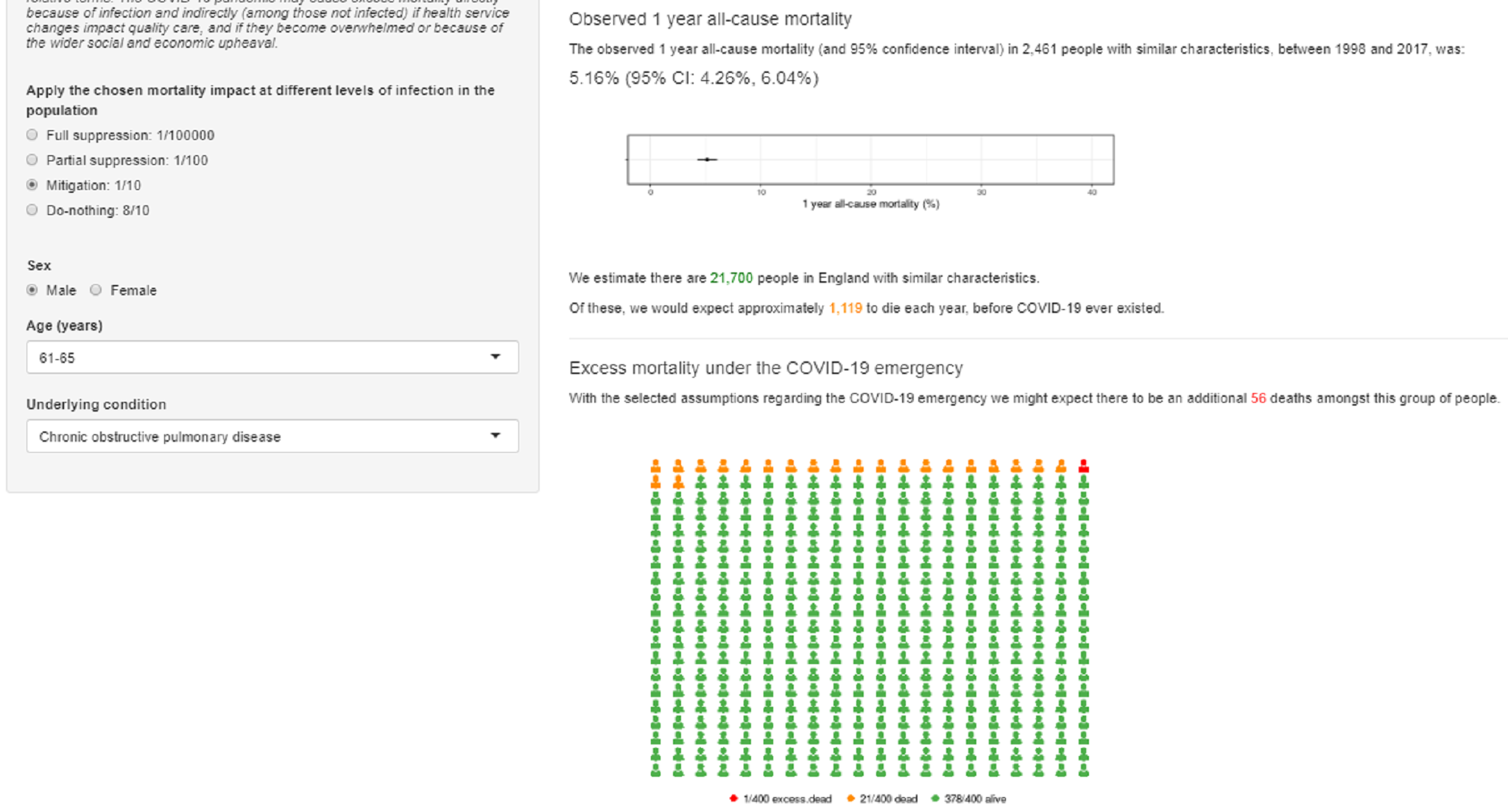Scientists develop online calculator to predict individual’s risk of dying from Covid-19
The online tool predicts a one-year mortality rate based on factors such as age, sex and underlying illnesses.
Your support helps us to tell the story
From reproductive rights to climate change to Big Tech, The Independent is on the ground when the story is developing. Whether it's investigating the financials of Elon Musk's pro-Trump PAC or producing our latest documentary, 'The A Word', which shines a light on the American women fighting for reproductive rights, we know how important it is to parse out the facts from the messaging.
At such a critical moment in US history, we need reporters on the ground. Your donation allows us to keep sending journalists to speak to both sides of the story.
The Independent is trusted by Americans across the entire political spectrum. And unlike many other quality news outlets, we choose not to lock Americans out of our reporting and analysis with paywalls. We believe quality journalism should be available to everyone, paid for by those who can afford it.
Your support makes all the difference.British scientists have built a calculator that can predict a person’s risk of dying from coronavirus.
The online tool, created by researchers at University College London (UCL), predicts a one-year mortality rate based on factors such as age, sex and underlying illnesses.
It also takes into account the risks of the infection as well as indirect elements such as strain on the health service.
The calculator has been built as part of a wider study, which warns lifting the coronavirus lockdown too quickly could lead to anywhere between 37,000 and 73,000 excess deaths within a year.
The study, published in The Lancet journal, estimates there are about 8.4 million individuals who are extremely vulnerable to Covid-19 infection across the whole of the UK.
Author Professor Harry Hemmingway said keeping the infection rate down among the public is helping to keep these vulnerable people safe.
He explained doctors also “need to continue to deliver high quality medical care to vulnerable people to prevent excess deaths in those who are not infected with coronavirus”.
Researchers looked at data from 3.8 million health records for the study and based its conclusions on England having a 10 per cent infection rate and 20 per cent of people having a high-risk condition.


Lead author Dr Amitava Banerjee explained: “For example, we show how a 66-year-old man with chronic obstructive pulmonary disease has a 6 per cent risk of dying over the next year and there are 25,000 ‘patients like me’ (i.e. men of the same age with the same condition) in England.
“The calculator estimates 164 excess Covid-related deaths on top of the expected 1,639 deaths over a year in patients in a similar situation.”
He added: “Our findings show the mortality risk for these vulnerable groups increases significantly and could lead to thousands of avoidable deaths.”
Another author said the data could help inform NHS policy on vulnerable patients.
Professor Hemmingway explained: “Our findings emphasise the importance of delivering consistent preventive interventions to people with a wide range of diseases, who are cared for by a wide range of clinical specialties.
“This policy is only possible because we have an NHS able to use system-wide data for patient benefit.”
Additional reporting by PA

Join our commenting forum
Join thought-provoking conversations, follow other Independent readers and see their replies
Comments